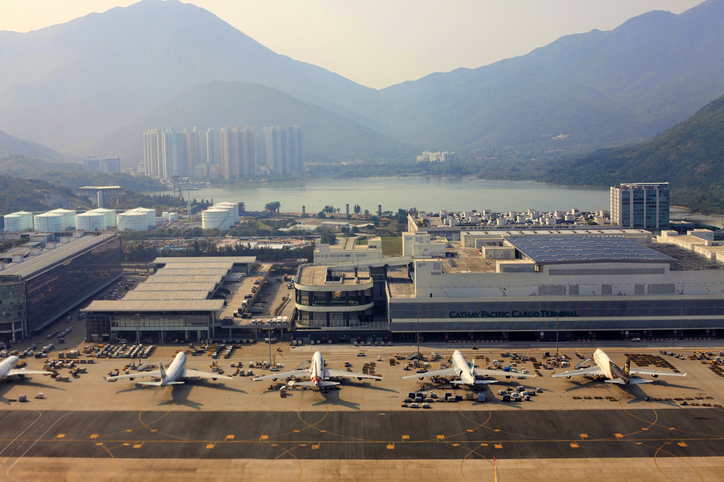Boeing suffered a fresh setback at the opening of the Paris Airshow on Monday as the U.S. planemaker’s engine supplier revealed a delay affecting its all-new 777X jet, while Airbus targeted the middle of the market with a rival plane.
GE Aviation said it had found unexpected wear in a component for the GE9X engine it is making for Boeing’s 777X, the world’s largest twin-engined jet, forcing a delay of several months while it redesigns and tests the part.
The aerospace industry’s biggest annual event, which alternates with Britain’s Farnborough Airshow, is traditionally a slugging match between Airbus and Boeing in the $150 billion a year commercial aircraft market.
But this year Boeing is still grappling with the grounding of its top-selling 737 MAX aircraft in March after two deadly crashes, while European arch-rival Airbus is dealing with the fallout from a long-running corruption scandal.
Airbus used the show to launch a long-range version of its A321neo jet, aiming to carve out new routes for airlines with smaller planes and steal a march on Boeing’s owns plans for another potential all-new jet, the NMA.
“We can fly from north-eastern Asia into south Asia, from the Middle East to Bali or from Japan deep into Australia, and so on,” Airbus chief salesman Christian Scherer said.
“It is therefore the lowest-risk investment for airlines on these kinds of routes.”
Leasing company Air Lease Corp became the first customer of the new aircraft – the A321XLR – lining up for 27 as part of a deal for 100 Airbus planes.
Sources familiar with the matter said Airbus was trying to assemble close to 200 orders or conversions to the new model as it chases deals with carriers including American Airlines, JetBlue, Cebu Air and Frontier Airlines owner Indigo Partners.
Despite a flurry of delegates dashing in golf carts between parked jetliners, missiles and spy planes, this year’s gathering appeared relatively subdued, with a profit warning from Lufthansa adding to trade tensions and slowing economies.
French President Emmanuel Macron watched as France and Germany unveiled a sleek, dagger-shaped mockup of a new fighter plane the two close European allies plan to develop.
Analysts expect anything from 400 to 800 commercial aircraft orders and commitments at the show, compared with 959 at Farnborough last year, though it can be hard to identify truly new business against firmed-up commitments and switched models.
Boeing commercial airplanes boss Kevin McAllister said it was premature to predict any delays to the 777X programme. The planemaker is targeting a maiden flight this year and entry into service the next.
Gulf airline Emirates has said it expects the first plane in June 2020. Flight tests often take more than a year.
SIZE VS COMFORT
The Airbus A321XLR will be the longest-range narrow-body jetliner and arrives as airlines look to maximise the flexibility of more fuel-efficient, single-aisle aircraft.
Its range of up to 4,700 nautical miles – about 15% more than the previous A321LR – will leapfrog the out-of-production Boeing 757 and nudges it into the long-jump category occupied by more costly wide-body jets.
The A321XLR also eats into a range category targeted by the possible NMA mid-market, twin-aisle jet under review by Boeing.
“It does provide a very effective airplane for many of the same routes as the NMA, and it does so many years earlier,” Air Lease CEO John Plueger said of the new Airbus jet.
But there is a debate over whether passengers will enjoy flying longer distances in medium-haul planes.
Airbus did not give a price for the A321XLR. The current A321neo has a list price of $129.5 million.
Boeing Chairman and CEO Dennis Muilenburg on Sunday said the A321XLR would only “scratch an edge” of the market segment targeted by the NMA. But Air Lease founder Steven Udvar-Hazy, a doyen of the leasing industry, said the NMA project remained “a little bit in cold storage” as long as the MAX grounding lasted.
He added that Boeing expected to announce orders for wide-body jets at the Paris show but its main focus at the event was safety, with executives taking turns to apologise for the MAX crashes in Indonesia and Ethiopia that killed 346 people.
“This is the most trying of times,” Boeing’s McAllister told a press briefing.
“But without a doubt this is a pivotal moment for all of us. It’s a time to capture learnings. It’s a time to be introspective. And it’s a time for us to make sure accidents like this never happen again.”







